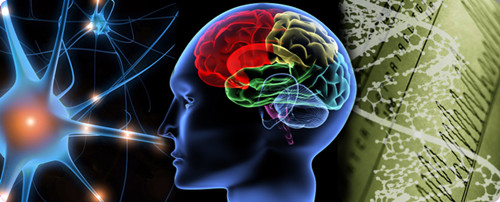
. > FOCUS > SCIENCE & HUMANITY
Unique to humans, language ability emphasized in neuroscience research
Author : Zha Jianguo, Zhang Qingli Source : Chinese Social Sciences Today 2016-07-21

Neuroscience, a key research area in recent years, aims to clarify working principles and operating mechanisms of the brain and nervous system.
Neuroscience has become a key research area in recent years. It aims to clarify working principles and operating mechanisms of the brain and nervous system.
On June 30, the “High-End Forum on Human Language Ability and Brain Science” was held in Hangzhou, capital of South China’s Zhejiang Province. Scholars from various fields, such as neuroscience, cognitive sciences and linguistics, attended the meeting. They said that research on language ability represents a breakthrough for Chinese neuroscience.
Research core
Attention, memory, emotion and language constitute the advanced functions of the human brain. Language faculties are closely related to certain regions of the brain. Only advanced language functions are unique to humans. Tang Xiaowei, a professor from Zhejiang University and an academician of the Chinese Academy of Sciences, argued that language ability lies at the core of brain science, because the development of the human brain is always accompanied by the growth and degeneration of language ability.
Language ability refers to the ability to produce and master language and to use it to serve society. Yang Yiming, a professor from Jiangsu Normal University, said that language ability contains individual and social dimensions. The former refers to the ability to listen, speak, read, write and translate. As people gain a greater understanding of science, they come to realize that language ability is in essence a brain function.
Language ability is a research frontier for the global neuroscience community. Yang pointed out that this research includes the biological basis and neural mechanisms that produce language.
But this research also needs to take into account basic language knowledge, like grammar, semantics, vocabulary, phonetics and pragmatic elements, on top of the very basic building blocks of language like listening, speaking and writing.
Researchers also need to consider the variations in languages and the use of language by people with disabilities, such as the deaf.
Originality
Given the significance of neuroscience, as well as its social and economic needs, this area of study has witnessed rapid development in China. “Outline of the National Medium to Long-Term Science and Technology Development Plan (2006-2020)” listed neuroscience and cognitive science as being among eight frontier topics on the discipline. The 13th Five-Year Plan also emphasized the importance of rudimentary frontier research into areas such as the brain’s cognitive ability.
Major research topics involve functional brain cells and molecular mechanisms, causes of major brain diseases, advanced cognitive abilities and their neural basis, and conversations between artificial intelligences and human brains. Chinese scientists are carrying out research aimed at discovering the mysteries of human brains, treating brain diseases, and developing artificial intelligence.
Although agreements on the blueprints for brain research have been reached, related research designs, objects, and approaches have to be further clarified. The research must be innovative and avoid merely copying the plans of other countries.
Among all levels of research related to neuroscience, studies focused on advanced cognitive ability are the top priority, said Sun Maosong, a professor from the Department of Computer Science and Technology at Tsinghua University. He suggested that future projects in neuroscience in China should establish a scientific research system that involves multiple areas of study.
In addition, Tang said that the key problem is identifying advantages and making breakthroughs in research fields.
Today, scientists all over the world are striving to figure out how language ability is inherited and processed at the molecular and brain level.
Ye Shengtao made Chinese fairy tales from a wilderness
Ye Shengtao (1894–1988) created the first collection of fairy tales in the history of Chinese children’s literature...
-
How northern ethnicities integrated into Chinese nation
2023-09-18
-
Mogao caves
2023-09-12
-
Mogao Grottoes as ‘a place of pilgrimage’
2023-09-12
-
Time-honored architectural traditions in China
2023-08-29
-
Disentangling the civilizational evolution of China
2023-08-28
-
AI ethics in science fiction
2023-08-23













 2011-2013 by www.cssn.cn. All Rights Reserved
2011-2013 by www.cssn.cn. All Rights Reserved